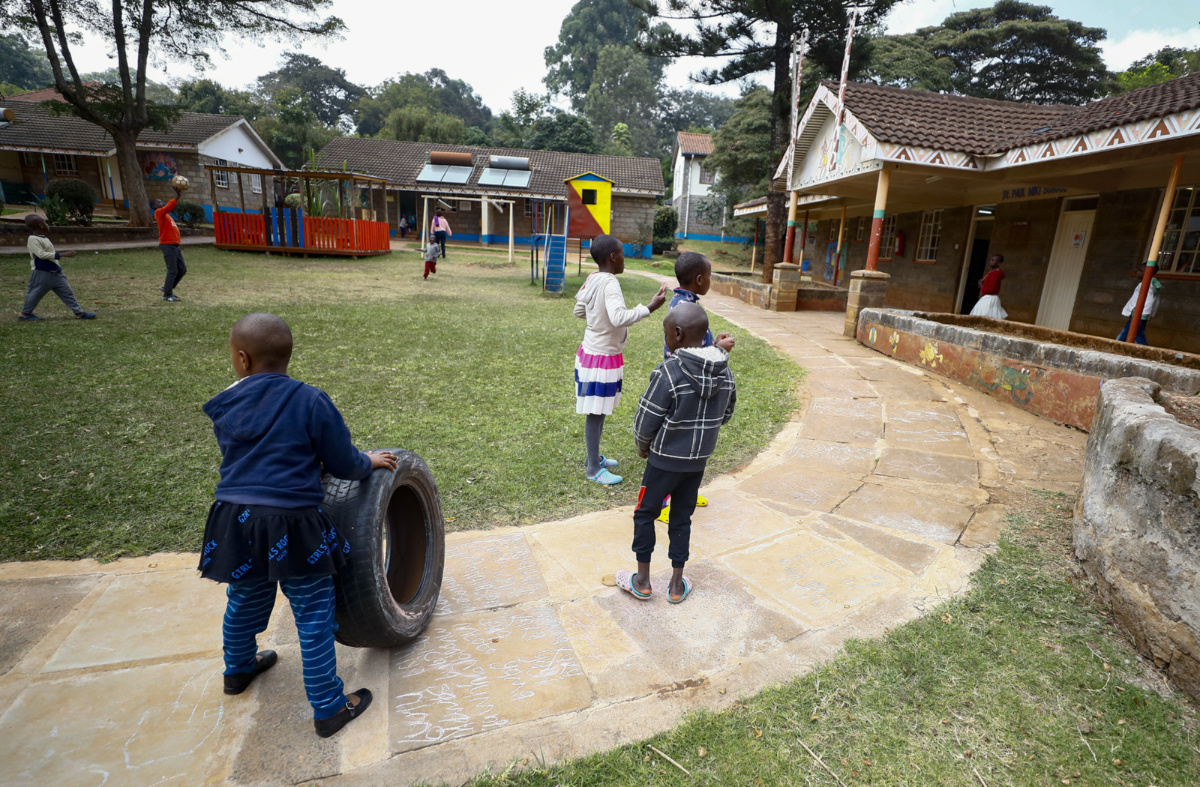Nairobi, Kenya
RNS
Amid a growing push among child welfare organisations to reunite families rather than keep children in institutional homes, Kenyan authorities are set to adopt a new national program that will phase out traditional orphanages over the next decade.
Church leaders in the country, whose denominations run hundreds of orphanages, have expressed support for the plan, saying children’s homes have exposed children to abuse. Other faith leaders back private institutional operators in opposing the change.

Children play at the Nyumbani Children’s Home in Nairobi, Kenya, on 15th August, 2023. Kenya is seeking to replace orphanages with family-based care. PICTURE: AP Photo/Brian Inganga.
Roman Catholic Bishop Willybard Kitogho Lagho of Malindi said the Catholic Church supports the government plan because many of the institutions are no longer safe for children.
“There have been a lot of abuses in these homes,” said the bishop. “Children have been sexually, physical and emotionally abused. There have also been cases of child trafficking.” Some orphanages, he alleged, were founded by “unscrupulous people who want to gain from donor funding.”
The treatment of orphans in Africa has come under fire in recent years as recent studies have shown that as many as half of children in six low-income countries on the continent have been abused. While some better-funded homes provide education that children could not get in their home villages, many children in residential care show signs of developmental delays and neglect.
Experts also say that donations from developed countries have also skewed the priorities of some children’s welfare agencies. Anglican Bishop Alphonse Baya Mwaro of Mombasa likened some Kenyan children’s homes to businesses.
“They do not genuinely support children who are orphaned or who find themselves without family support,” he said.
Faith organisations with long histories in Africa now question whether even the best care is more beneficial than finding relatives who will take in children who have lost parents or have become homeless or destitute. Several have closed their residential homes and instead support family reunification.
In Africa, uncles, aunts and other relatives have traditionally stepped up to care for young family members, said Lagho. “This is the most natural environment for children to grow up,” he said.
We rely on our readers to fund Sight's work - become a financial supporter today!
For more information, head to our Subscriber's page.
The system has in some cases promoted the separation of children.
“When you look at the children in the institutions, most of them have families,” said Selastine Nthiani, a manager at the Child Welfare Society of Kenya. They are often sent away from home “for education or because their families are poor. Very few of them are total orphans or children without any parents,” she said.
Nthiani said the government’s changing approach to children’s care was part of an international trend. “The world is moving away from institutional care of children to family- and community-based care,” she said.
Janet Mwema, a senior officer at Kenya’s National Council for Children’s Services, said the government will not shutter institutions, but transition responsibility for destitute children to family and local communities over time.
According to Mwema, some residential homes will continue to operate as educational centers. “A child might be residing in a home because of education. We want to strengthen the families and community such that the child can get the education while living with the biological parents or community,” said Mwema.
In Kenya, 3.6 million children are orphans, some 47 per cent of whom lost parents to HIV and AIDS. An estimated 45,000 children live in more than 845 private institutions in Kenya, according to the State Department for Social Protection. Another 1,000 to 1,200 live in 28 government-run institutions.
Mwaro said there are challenges the new program has yet to resolve, such as how to monitor domestic violence and mistreatment of the children by family members. Some children, said Mwaro, are safer at an orphanage.
Bishop Johnes Ole Meliyio of the Kenya Evangelical Lutheran Church said that while “the centres cannot be the permanent homes for the children,” closing church homes, which play an important role by supporting needy children without government support, was ill-advised. “Taking the children back to the community is a good idea, but shutting the homes is another issue,” he said.
Some church leaders and government officials have alleged child trafficking in the centres, but there are no reliable statistics.
Clarification: This article was missing some paragraphs. Apologies for any confusion.






